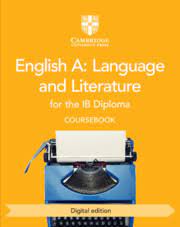The Comprehensive Guide to Classical Languages (Latin and Greek)
Unlock the gates to ancient civilizations and dive into the realm of classical languages! The Classical Languages exam, encompassing Latin and Classical Greek, invites you to unravel the rich tapestry of ancient texts and cultures. Join Admit Hero as we embark on a journey through time, equipping you with the tools and strategies to conquer this linguistic adventure."
Frequently Asked Questions about the Classical Languages Exam:
Q: What is the Classical Languages exam? A: The Classical Languages exam is designed to assess students' proficiency and comprehension in Latin and Classical Greek. It evaluates their ability to read, interpret, and analyze ancient texts from renowned authors such as Cicero, Virgil, Homer, and Plato.
Q: How is the exam structured? A: The exam consists of multiple-choice questions, translation exercises, and essay prompts that test students' knowledge of grammar, vocabulary, and literary analysis. It aims to assess their understanding of linguistic features, cultural context, and the significance of the texts within the historical and literary traditions.
Strategies for Excelling in the Classical Languages Exam:
- Master Grammar and Vocabulary:
- Develop a solid foundation in grammar rules and syntax peculiarities of Latin and Classical Greek.
- Create flashcards to memorize vocabulary and practice using them in different contexts.
- Engage with Authentic Texts:
- Read and analyze authentic classical texts regularly, focusing on comprehension, translation, and interpretation.
- Explore a variety of genres, from epic poetry to historical prose, to broaden your understanding of different literary styles.
- Enhance Cultural Knowledge:
- Immerse yourself in the rich history and cultural context of ancient civilizations through supplementary readings and documentaries.
- Understand the societal, political, and philosophical influences that shaped the works of classical authors.
- Practice Translation and Literary Analysis:
- Regularly engage in translation exercises to strengthen your linguistic skills and accuracy.
- Develop your ability to analyze literary devices, themes, and symbolism present in the texts.
Question to Engage the Reader: "What fascinates you the most about ancient languages like Latin and Classical Greek? Is it the allure of deciphering ancient manuscripts, the connection to the roots of Western civilization, or something else entirely? Share your thoughts in the comments below and let's celebrate the beauty of classical languages together!"
Explanation of the Classical Languages Exam:
- Elaborate on the structure of the exam, emphasizing the importance of grammatical accuracy, vocabulary knowledge, and literary analysis.
- Discuss the significance of classical languages in understanding the foundations of Western literature, philosophy, and history.
With Admit Hero as your guide, you possess the key to unlocking the treasures of the Classical Languages exam. Immerse yourself in the linguistic wonders of Latin and Classical Greek, unravel the intricacies of ancient texts, and connect with the intellectual heritage of past civilizations. By mastering grammar and vocabulary, engaging with authentic texts, enhancing cultural knowledge, and practicing translation and literary analysis, you are ready to conquer this linguistic journey. May your exploration of the classical languages enrich your understanding of the past and ignite a lifelong passion for the classics. Bon voyage, intrepid linguists!

 By
By


